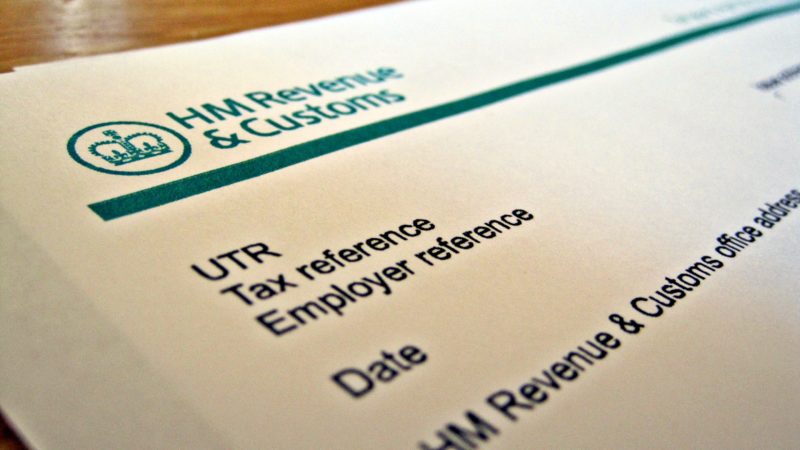'UK governments are dressed-up in the garbs of democracy, but continue to privilege the interests of wealthy elites and footloose capital.'

14 April, 2022
Left Foot Forward
Prem Sikka is an Emeritus Professor of Accounting at the University of Essex and the University of Sheffield, a Labour member of the House of Lords, and Contributing Editor at Left Foot Forward.Left Foot Forward
In 1863, US President Abraham Lincoln visualised democracy as a “government of the people, by the people, for the people”. Some 160 years later, that dream remains unfulfilled.
UK governments are dressed-up in the garbs of democracy, but continue to privilege the interests of wealthy elites and footloose capital. Occasionally, a few concessions are made to the masses to legitimise the illusion, but they can always be withdrawn as shown by cuts in Universal Credit and suspension of the triple-lock on the state pension.
Taxation policies provide a window for examining the direction of the state and whether it is ‘of the people [and] for the people’. This week, it came to light that Chancellor Rishi Sunak’s wife enjoyed non-dom status for tax purposes enabling her to avoid at least £2.1m in UK taxes whilst her husband wrote the tax rules. Health Secretary Sajid Javid said that he too held non-dom status before pursuing a career in politics.
The non-dom tax regime was first introduced in 1799 to enable British colonialists to shelter foreign property from taxes. Today, the perk is available to wealthy elites who live in the UK but claim to have permanent residence (domicile) abroad.
Ordinary Brits pay tax on their worldwide income and gains, but this rule does not apply to non-doms. All non-dom status holders are required to pay income tax on their UK earnings, but avoid income tax and capital gains tax on assets held elsewhere as long as the amounts are not remitted to the UK. This is known as the “remittance basis” of taxation. Non-doms also enjoy valuable inheritance tax, business investment relief and other tax reliefs. Non-dom status is part of a complex offshore and onshore web of tax avoidance.
Non-dom status has no statutory definition and has to be negotiated with HMRC. To secure the ‘remittance basis’ of taxation, an annual charge of £30,000 is payable by individuals residing in the UK for more than 7 out of the past 9 years. This rises to £60,000 for individuals resident in the UK for more than 12 years out of past 14 years. The maximum duration of non-dom status is 15 years. In recent years HMRC has targeted a number of non-doms for suspected tax avoidance.
In 2020, some 75,700 wealthy individuals secured non-dom status and paid no UK tax on their offshore income. Recent research shows that four out of ten individuals earning around £5 million or more claimed non-dom status, compared with less than three in one thousand among those earning less than £100,000. Biggest beneficiaries are concentrated in banking, oil, auto, sports and film industries and 58% of the non-dom taxpayers are based in London.
The government says that non-doms paid £7,853 million in income tax, capital gains tax and national insurance contributions. However, it is silent on what amounts would have been payable if non-doms were taxed on the same basis as ordinary people. No information is provided about the taxes avoided by non-doms.
The government also claims that in 2019, £1,031 million was invested in the UK by non-doms. However, it does not explain whether the investment is in productive assets, or used for speculation which creates bubbles in commodities, securities and property markets. The investment can also be illusory in that it is being used to exploit tax advantages. In any case, the investment can be made independent of the non-dom tax perks.
Such is the state of democracy in the UK that 75,700 footloose ultra-rich people enjoy all the benefits of social infrastructure but are not liable to taxes on the same basis as normal people even when they have lived in the UK for 14 years. Last week, the Finance Act 2022 handed more tax perks to non-doms through its Qualifying Asset Holding Companies regime. At the same time, the government increased income tax and national insurance contributions which would force 27 million people to pay more.
The interests of the rich are embedded in tax legislation elsewhere too. For example, capital gains and dividends, mostly accruing to the rich, are taxed at marginal rates in the range of 10%-28%, and 8.75% to 39.35% respectively, compared to 20%-45% on earned income. Recipients of capital gains do not pay any national insurance. National insurance at the rate of 13.25% is levied on annual earned income between £12,570 and £50,300, but only 3.25% is levied on incomes above £50,300.
The net result of various tax policies is that the poorest 10% of households pay 47.6% of their income in direct and indirect taxes, compared to 33.5% by the richest 10% of the households. Inevitably, poverty is inflicted on the masses. Even before the pandemic 14.5 million people, including 4.3 million children, lived below the poverty line and there is ever increasing reliance upon foodbanks.
No “government of the people, by the people, for the people” could ever be compatible with this treatment of the masses. The ultimate aim of democracy is to enable people to live fulfilling lives and that won’t be achieved without fundamental changes to the political system.
Related Posts:
Prof Prem Sikka: The government’s claims of not being able to lift retirees out of poverty are not credible
Prof Prem Sikka: The government’s obsession with neoliberalism isn’t creating prosperity or happiness
Prof Prem Sikka: Why we must resist the Elderly Social Care (Insurance) Bill
Prof Prem Sikka: The Chancellor’s budget is a continuation of the government’s class wars
No comments:
Post a Comment